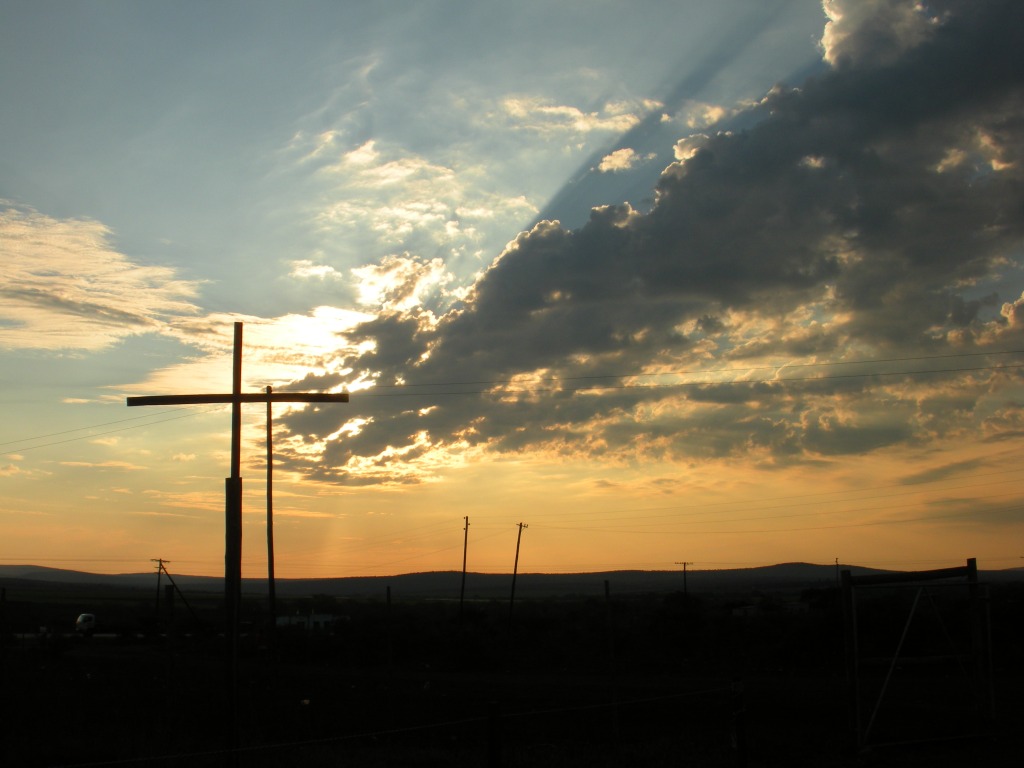C. Michael Patton lists the 6 views on the Creation/Evolution debate. I thought these would be helpful for anyone studying the issue like myself.
1. Young Earth Creationism
 The belief that the universe and all that is in it was created by God around ten-thousand years ago or less. They insist that this is the only way to understand the Scriptures. Further, they will argue that science is on their side using “catastropheism.” They believe that world-wide biblical catastrophes sufficiently explain the fossil records and the geographic phenomenon that might otherwise suggest the earth is old. They believe in a literal Adam and Eve, Garden of Eden, snake talking, and world-wide flood.
The belief that the universe and all that is in it was created by God around ten-thousand years ago or less. They insist that this is the only way to understand the Scriptures. Further, they will argue that science is on their side using “catastropheism.” They believe that world-wide biblical catastrophes sufficiently explain the fossil records and the geographic phenomenon that might otherwise suggest the earth is old. They believe in a literal Adam and Eve, Garden of Eden, snake talking, and world-wide flood.
2. Gap Theory Creationists
 Belief that the explanation for the old age of the universe can be found in a theoretical time gap that exists between the lines of Genesis 1:1 and 1:2. God created the earth and the earth became formless and void. Therefore God instituted the new creation which begins in Genesis 1:2b. This theory allows for an indefinite period of time for the earth to exist before the events laid out in the creation narrative. Gap theorists will differ as to what could have happened on the earth to make it become void of life. Some will argue for the possibility of a creation prior to humans that died out. This could include the dinosaurs. They normally believe in a literal Adam and Eve, Garden of Eden, snake talking, and world-wide flood.
Belief that the explanation for the old age of the universe can be found in a theoretical time gap that exists between the lines of Genesis 1:1 and 1:2. God created the earth and the earth became formless and void. Therefore God instituted the new creation which begins in Genesis 1:2b. This theory allows for an indefinite period of time for the earth to exist before the events laid out in the creation narrative. Gap theorists will differ as to what could have happened on the earth to make it become void of life. Some will argue for the possibility of a creation prior to humans that died out. This could include the dinosaurs. They normally believe in a literal Adam and Eve, Garden of Eden, snake talking, and world-wide flood.
3. Time-Relative Creationism
Belief that the universe is both young and old depending on your perspective. Since time is not a constant (Einstein’s Theory of Relativity), the time at the beginning of creation would have moved much slower than it does today. From the way time is measured today, the succession of moments in the creation narrative equals that of six twenty-four hour periods, but relative to the measurements at the time of creation, the events would have transpired much more slowly, allowing for billions of years. This view, therefore, does not assume a constancy in time and believes that any assumption upon the radical events of the first days/eons of creation is both beyond what science can assume and against the most prevailing view of science regarding time today. This view may or may not allow for an evolutionary view of creation. They can allow for in a literal Adam and Eve, Garden of Eden, snake talking, and world-wide flood.
4. Old Earth Creationists
(also Progressive Creationists and Day-Age Creationists)
 Belief that the old age of the universe can be reconciled with Scripture by understanding the days of Genesis 1 not at literal 24 hour periods, but as long indefinite periods of time. The word “day” would then be understood the same as in Gen. 2:4 “. . . in the day that the LORD God made the earth and the heavens.” While this view believes the universe and earth are billions of years old, they believe that man was created a short time ago. Therefore, they do not believe in evolution. They believe in a literal Adam and Eve, Garden of Eden, snake talking, and world-wide flood.
Belief that the old age of the universe can be reconciled with Scripture by understanding the days of Genesis 1 not at literal 24 hour periods, but as long indefinite periods of time. The word “day” would then be understood the same as in Gen. 2:4 “. . . in the day that the LORD God made the earth and the heavens.” While this view believes the universe and earth are billions of years old, they believe that man was created a short time ago. Therefore, they do not believe in evolution. They believe in a literal Adam and Eve, Garden of Eden, snake talking, and world-wide flood.
5. Theistic Evolution (with a literal Adam and Eve):
 The belief that God created the universe over billions of years, using evolutionary processes to create humanity. At some time, toward the end of the evolutionary process, God, through an act of special creation, created Adam and Eve as the head of the human race. Some also believe that God did not use special creation, but appointed already existing humanoids as the representatives for humanity calling them Adam and Eve. They may or may not believe in a snake talking and usually believe that the flood was local.
The belief that God created the universe over billions of years, using evolutionary processes to create humanity. At some time, toward the end of the evolutionary process, God, through an act of special creation, created Adam and Eve as the head of the human race. Some also believe that God did not use special creation, but appointed already existing humanoids as the representatives for humanity calling them Adam and Eve. They may or may not believe in a snake talking and usually believe that the flood was local.
6. Theistic Evolutionists (no literal Adam and Eve)

The belief that God created the universe over billions of years, using evolutionary processes to create humanity. Adam and Eve are simply literary and symbolic, representing the fall of humanity and the ensuing curse.
Problems with the more conservative views:
- Often does not recognize that the Bible is not a science book and was not meant to answer all our questions.
- Can create a “believe-this-or-do-not-believe-anything-at-all” approach.
- Can create a dichotomy between the Bible and science.
Problems with the more liberal views:
- Often assumes uniformatarianism for all of human history (i.e. the measurement of things today can be applied to the same in the distant past).
- Can seem to twist Scripture to harmonize.
- It is difficult to know when actual (not accommodated history) history in Genesis picks up (i.e. if Genesis 1-3 are allegory or accommodation, where does “real” history start? Genesis 4? Genesis 6? Genesis 12? What is the exegetical justification for the change?)
A link to Patton’s blog where all of this can be found and one can read all the comments wrote in response.
http://www.reclaimingthemind.org/blog/2009/05/six-views-on-the-creationevolution-debate/
Just for fun…Jesus riding a dinosaur…





Leave a comment